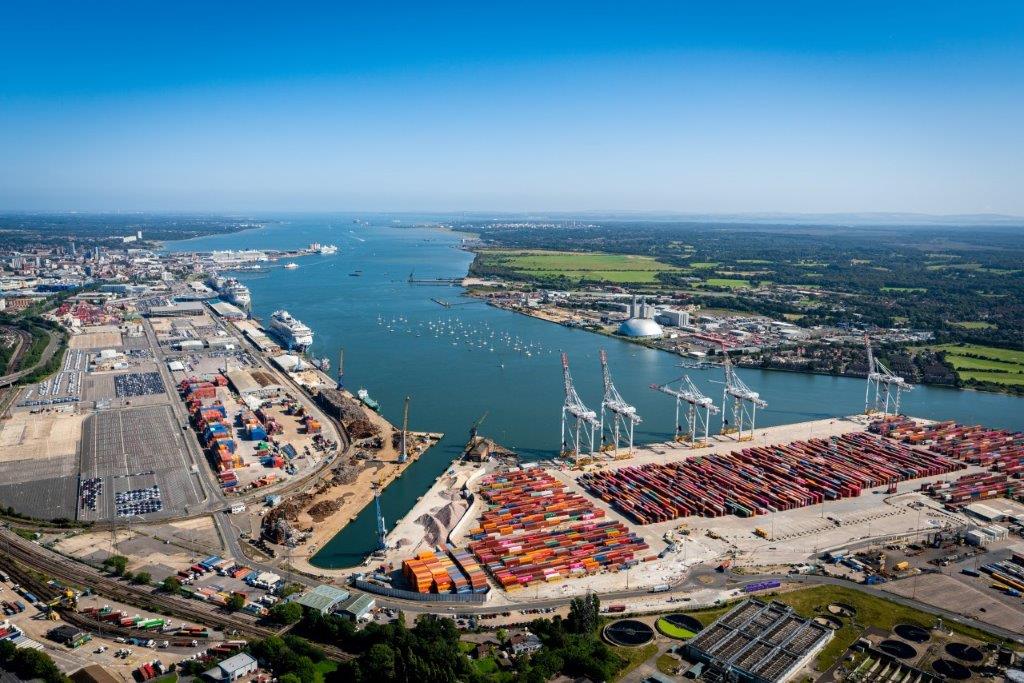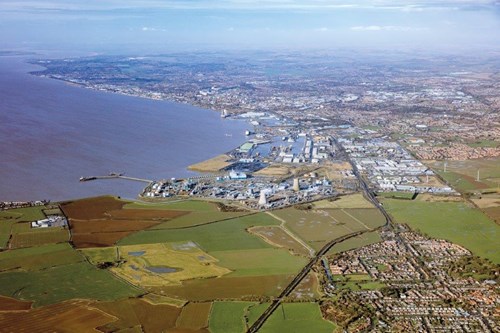 Huw Turner Head of Group Property, Associated British Ports
Huw Turner Head of Group Property, Associated British Ports

Last year, in the face of supply chain issues brought about by a lack of HGV drivers, some UK retailers resorted to chartering ships to ensure their products were in the right place in time for Christmas. This may have been a stop-gap measure but now ports are becoming an increasingly important part of the supply chain.
The need for more warehouse space to fulfil online retailing – which is growing and was accelerated by the pandemic – plus ongoing labour shortages are putting unprecedented pressure on the UK’s supply chain. It is facing a ‘perfect storm’ of land and labour shortages coupled with rising fuel and energy costs.
Accordingly, the country needs more distribution hubs adjacent to major conurbations with a good labour supply and which can connect into our road and rail networks. Against this backdrop, UK ports with their large landbanks and transport connectivity are increasingly seen as being able to support the supply chain and bring sustainable benefits through the reduction of ‘product miles’.
Nearly half of all goods that are imported into the UK come through the country’s ports but its role in the domestic supply chain has been less exploited. With the boom in e-commerce there is now an extreme shortage of land which is suitable for accommodating large-scale logistics operations. This shortage has led to a rise in land values and rents that operators have to pay for their distribution facilities.
During the past 12 months, we have brought forward around 1,000 acres of development land aimed at businesses in the supply chain, manufacturing and renewable energy sectors and we have four locations which are designated for Freeport status. Locating a business within a Freeport can have profound cost advantages for businesses. It’s estimated that over a five-year period, a business could save in excess of £6m through Stamp Duty Land tax relief, NIC rate relief, and a business rates exemption.
And at a time of rising energy costs, we generate renewable energy at 17 of our 21 ports which is helping occupiers decarbonise their businesses and shift to electric vehicles.
It's hard to overstate how important our ports can be in terms of easing supply chain congestion as well as facilitating the UK’s manufacturing and energy sectors. During the next year or so, we will be spending more than £5m to make our sites ready for development, obtain appropriate outline planning consents, and bring forward technical understanding and land preparation.
Freeport support
In 2016, a relatively obscure MP called Rishi Sunak authored a white paper entitled ‘The Free Ports Opportunity’ so it’s relatively safe to assume that the case for Freeports is understood at the highest level of Government.
As part of its Freeports initiative, the Government has pledged to provide further incentives for business investment, while easing planning for new developments and creating infrastructure. Mace construction group’s independent research suggests Freeports could generate 150,000 new jobs, contribute £9bn a year to the UK economy and assist the ‘Levelling Up’ agenda.
Attracting businesses
In the context of the supply chain, port locations can ease the burden on the established logistics hubs in the Midlands and South East, and provide a more cost-effective alternative.
What we are finding in our conversations with operators is that port sites also make sense geographically. While many logistics businesses have traditionally headed for the centre of the country to create a hub-and-spoke model for distribution, that’s not always the shortest route to the customer. For example, if you’re importing a substantial quantity of goods, it can make much more sense to be based at the port and distribute from there, particularly if you are then manufacturing products and transporting them on.
And the labour factor is also essential. Today, some occupiers are choosing sites almost wholly on the question of labour availability. Our sites enjoy very good metrics on that front, often due to the industrial heritage of the locations. Essentially, we are finding that landlord and occupier considerations around workforce, land availability and logistics costs are all dovetailing around these sites.
The Freeport dimension (see below) is particularly important for occupiers across all aspects of the import-export trade, as they allow the tax-free handling of goods or components which aren’t destined for UK internal markets. Our Southampton and Humber ports which both encompass Freeport sites are particularly relevant in this context.
These opportunities are also appealing to non-UK businesses. We have seen a lot of interest from Asia-based investors who see an opportunity to assemble products from imported components in a Freeport, obtain ‘made in the UK’ badges, while mitigating import-export duties, benefitting from tax breaks and being able to access a strong pool of labour.
Conversations on future investment and development are still ongoing between devolved governments and port operators like ABP. Our stance is firm on our future commitments which seek to tap into the potential Freeports have to offer across our portfolio, both in tackling systemic supply-chain issues and providing economic growth.
Freeport Britain

Pic caption: ABP has released 212 acres located within the Hull Humber Freeport Tax Assisted Zone
In an attempt to boost trade post-Brexit, the UK government unveiled plans to establish up to 10 freeports, designated areas benefitting from significant tax breaks, in order to encourage economic activity. Much of the tax relief centres on waiving import and export tariffs where components are brought in to assemble products or other value-add processes, with duties deferred until the goods are destined for the final customer.
ABP is involved in four out of the eight Freeports currently established in the UK. The company is a lead partner in the Solent-Southampton and Humber Freeports and supports the Liverpool City Region and Plymouth Freeports. The Government has also committed to establishing at least one Freeport in both Scotland and Wales, with news earlier this year confirming the plans for two green Freeports in Scotland. ABP has recently published its white paper ‘Future ports: Wales vision’ where it sets out its goals in transforming its network of South Wales ports at Swansea, Port Talbot, Barry, Cardiff and Newport.
At the Freeport on Humberside, ABP released some 212 acres located within the Hull Humber Freeport Tax Assisted Zone, which offers easy access to distributors seeking to import and export commodities. In Southampton, it has Freeport sites at Redbridge and Marchwood.
Huw Turner comments: “Both benefit from established logistic connections supporting the supply chain in a unique way, providing access to people, power and property – ultimately building a stronger supply chain with greater resilience to meet customer needs”.
For more information, please visit: https://www.abports.co.uk/